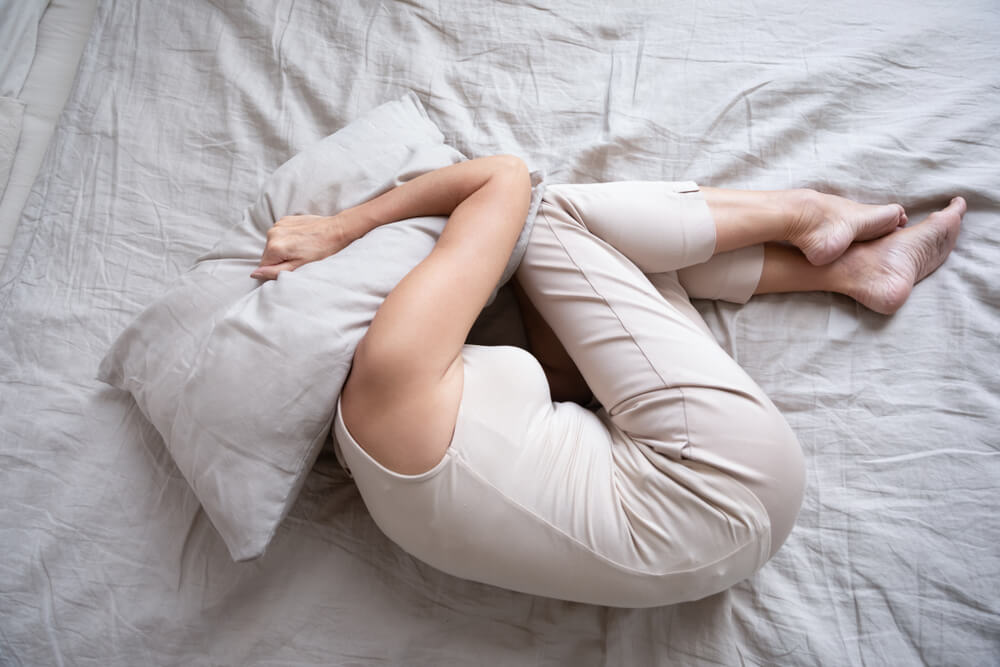The woman’s body undergoes some miraculous changes throughout the course of life. All three of these time periods in life are related to sexual fertility. These include adolescent puberty, pregnancy, childbirth, and the menopause process, Menopause signifies the end of sexual fertility and all women undergo this biological process. The symptoms each woman goes through experiences can differ significantly. Below, we’re going to discuss precisely what menopause is, the symptoms and most importantly, sleeping problems that are caused by this process.
What Is Menopause?
This female biological process begins roughly 12 months after a woman’s last menstrual cycle. Onset can happen during a wide age range, typically between the 40s and 50s, but the average age in the United States is 51. This natural process occurs when a woman’s ovaries no longer release an egg (ovulation) and the estrogen and progesterone stop the menstruation cycle. However, sometimes menopause can happen before the age of 40 and this is called premature menopause. There are a variety of reasons that can cause this to occur:
- Surgery (hysterectomy) because of uterine cancer or endometriosis
- Injury-related like sports or car accidents
- Treatments, like chemotherapy or radiation for cancer
The duration of menopause is also very different from woman to woman, but overall, it is categorized as a slow process that includes three phases:
- Perimenopause – this phase will typically begin a few years before menopause starts that involves the ovaries slowly reducing the amount of estrogen produced. During the last 1-2 years of perimenopause, estrogen levels drop faster, and women begin to experience menopause symptoms. On average, menopause lasts around four or five years, but some women experience a longer phase with symptoms that decrease in frequency and severity.
- Menopause – as discussed above, this phase is marked by 12 months without a menstrual cycle. Estrogen levels are low and most women experience a battery of symptoms.
- Postmenopause – this phase is categorized by the years after menopause, where symptoms subside. However, there are some health concerns associated with loss of estrogen levels as women age.
Common Menopause Symptoms

The most common symptom that women experience leading up to and during menopause is hot flashes. The sudden onset of feelings of warmth, blushing and sweating in the upper body is what one of these hot flashes are described as. Which symptoms and the severity (often mild in most) differs greatly from woman to woman. Common symptoms include:
- Uneven or missed periods
- Mood swings
- Fatigue
- Depression
- Crankiness
- Racing heart
- Headaches
- Joint and muscle aches
- Libido (sex drive) changes
- Vaginal dryness
- Urination control issues
- Insomnia
Menopause Insomnia
Just over 60% of women experience sleep issues during their menopause, according to the National Sleep Foundation studies. As discussed above, a woman’s body undergoes some drastic changes, especially in regard to the hormone levels in the body. Menopause and sleep can be frustrating to deal with but rather easy to treat. Most sleep disturbance is caused by the hot flashes during the three menopause phases, but other sleep issues can occur as a result of the lack of estrogen and progesterone. Sleep apnea, depression, and anxiety are the three main factors outside of hot flashes.
Menopausal Insomnia can be treated, very effectively if diagnosed properly. There are several menopause remedies that can be tried in order to help reduce or eliminate the symptoms experienced. Some of the most common menopause treatments to help with insomnia and other symptoms include:
- Hormone Replacement Therapy (HRT)
- Vaginal estrogen
- Low-dose antidepressants
- Anti-seizure medications
- Osteoporosis medications
- Alternative medicine and lifestyle changes
Dr. Andrew Krinsky of South Florida, is the best OB/GYN in South Florida. Dr. Krinsky is one of very few physicians in Florida that is Certified as a National Menopause Specialist by the North American Menopause Society. Whether you are looking for help with your menopausal symptoms or a gynecologist specialist in general, visit our site today to learn more about how Dr. Andrew Krinsky can help improve your daily life.


